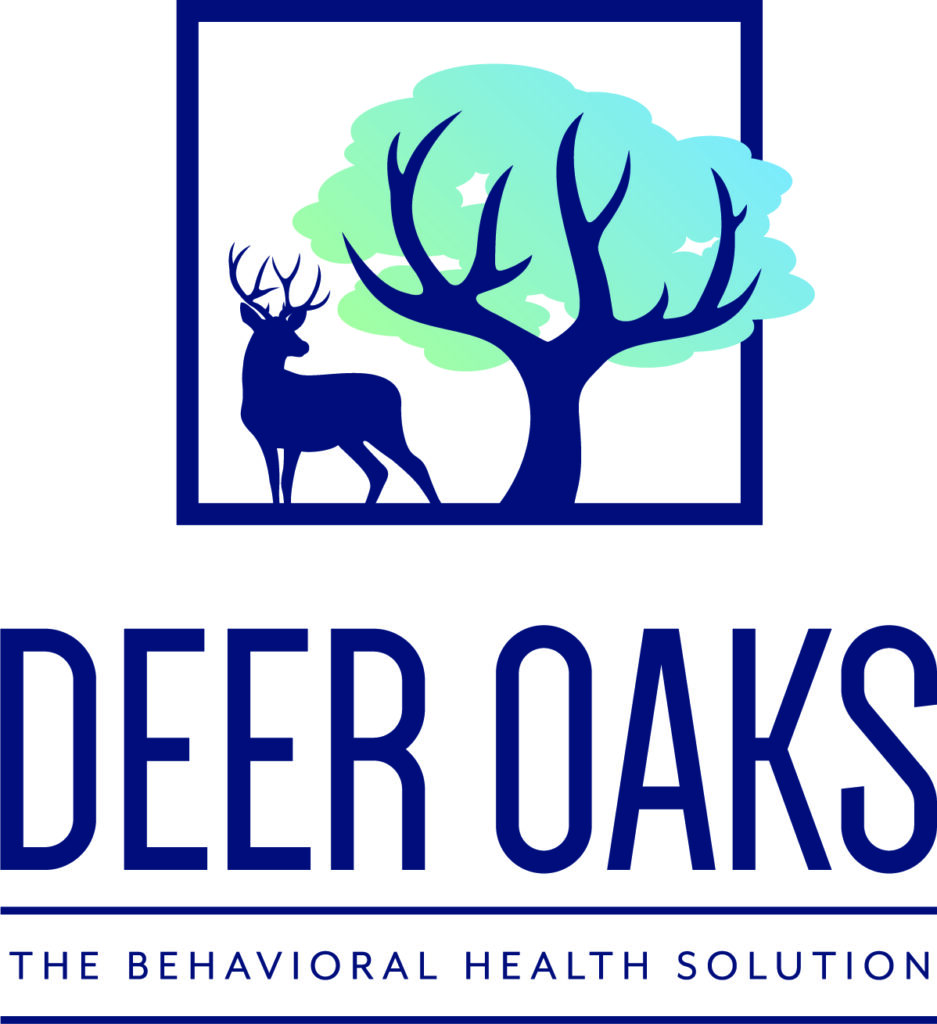From Cows to Values Integrity: Takeaways from the IPA Spring Conference Day 2
This is the second of two blog posts detailing the Iowa Psychological Association’s two-day Spring Conference, which occurred April 28-29, 2023.
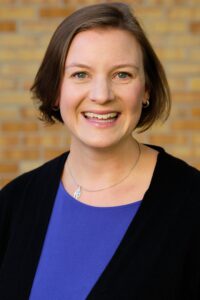 The Iowa Psychological Association Spring 2023 conference was unlike any other professional meeting I had ever attended! I knew it would be a unique day as I drove to the event from my home in Des Moines. Navigating across parts of Iowa I had never visited with vast farmland and small-towns drifting by, I was deep in thought about the future of our state. Not far from the venue, I turned too early and encountered a herd of cows in a field, with beautiful rolling hills and tiny gravel roads in the distance. I definitely wasn’t in Colorado anymore!
The Iowa Psychological Association Spring 2023 conference was unlike any other professional meeting I had ever attended! I knew it would be a unique day as I drove to the event from my home in Des Moines. Navigating across parts of Iowa I had never visited with vast farmland and small-towns drifting by, I was deep in thought about the future of our state. Not far from the venue, I turned too early and encountered a herd of cows in a field, with beautiful rolling hills and tiny gravel roads in the distance. I definitely wasn’t in Colorado anymore!
My partner, two young children, and I moved back to Iowa last summer after having lived out of the state for more than half my life. I joined IPA as I started my private practice this past winter and was welcomed with open arms. I am so glad I decided to attend the spring conference to deepen my connection with IPA.
I could only attend the Saturday portion of the conference, so upon arriving early that morning, I walked into a room of unfamiliar faces. I chose the first table with an open seat and immediately felt a warm welcome from my tablemates. I was fortunate enough to have landed with Sarah Fetter, Katie Kopp, and Ashley Freeman. We immediately connected and shared stories, and by the end of the day, I had found a new group of friends. I am still in awe at the way that Iowans can seek to connect with others. “Iowa Nice” can indeed mean that people want to get to know you and truly value you for what you are bringing to the table. We formed deep and authentic connections that day, and I am truly grateful.
A mid-career transition, major cross-country move, and job shifts were all front of mind when I saw that the conference theme was “Values, Burnout, and Finding Work-Life Integrity.” I was excited and decided to attend. Dr. Jenna Lejeune asked us to think about why we were attending the conference and what values we wanted to embrace. She evoked thoughtful introspection in the first few minutes, and I was all in!
Here are a few of my favorite takeaways from the experience:
- Dr. Lejeune led us through a burnout scale and spoke about how most interventions only target the exhaustion element of burnout, while ignoring the disconnection and reduced personal achievement elements. Typical self-care ideas like going on vacation increase our disconnection from others and can end up exacerbating burnout.
- Instead, “Caring well for ourselves is how we can care better for others.”
- Throughout the day, she helped us distill our chosen values to establish meaning in the present. The idea that “Having unclear values allows us to lose contact with what is important to us,” was powerful and transformative for me.
- She shared, “Meaning is constructed in moments where we are connected with what matters, in contact with a life we would define as a life worth living.”
- These ideas deepened my understanding of living in accordance with my values and moved me away from just thinking about the valued domains of my life (e.g., family and health). I do more thinking now about how to BE present in those domains instead of just realizing that they are important to me. “Valued domains are the arenas where our actions play out.”
- Dr. Lejeune shared that values are always immediately available to us. We can always take a step toward our values. The directionality is important, not the end point.
- Embracing spaciousness allows us to move toward values.
- Experiential avoidance predicts more mental health struggles.
- Certain relationships bring out our values. Partnerships don’t have to be perfect but can be like salt to chocolate, just a little sprinkle of salt to enhance the flavor of chocolate…find someone who is the salt to your chocolate.
- At the end of each day, when did you feel most alive? What do you like being? What days do you like who you are? Start with the value, then craft a life where that is supported. Values can guide you to a more meaningful and sustainable life.
- Move towards values integrity. “Balancing acts are always precarious and the person on the losing end is you.” Values create a bridge across all areas of our lives.
For more on any of this, I recommend Dr. Jenna Lejeune’s book (with co-author and partner Dr. Jason Luoma), Values in Therapy: Helping Clients Explore Values, Increase Psychological Flexibility, and Live a More Meaningful Life.
What was truly the most unique part of the day for me was when Dr. Lejeune asked for a volunteer to role play with her. I slowly held up my hand, excited to have the chance to learn more from her and gain some insight. As I sat in front of the room, I was able to be vulnerable and present with Dr. Lejeune and nothing about her approach felt like a technique or exercise while I was in the moment.
I shared an experience of hiking with my family and enjoying being fully present with my children. After that role play, we worked with some values card sorts. Through both of those activities, Dr. Lejeune helped me distill my core values, and she developed the phrase “gentle badass” to summarize what was important to me. I can be compassionate, gentle, kind, and loving while still challenging the status quo and embracing social justice.
Over the past month, I have thought about my experiences at the conference so many more times than any other professional conference I have attended. Though the day started with a wrong turn into a farm, I left with a sense of groundedness and direction in my career and values that will guide me for years to come. Thank you to the organizers of the conference, especially Dr. Nic Holmberg, for putting together such a lovely and connecting experience.
-Your resident gentle badass, Nicole Taylor-Irwin, PhD
Begin paid content
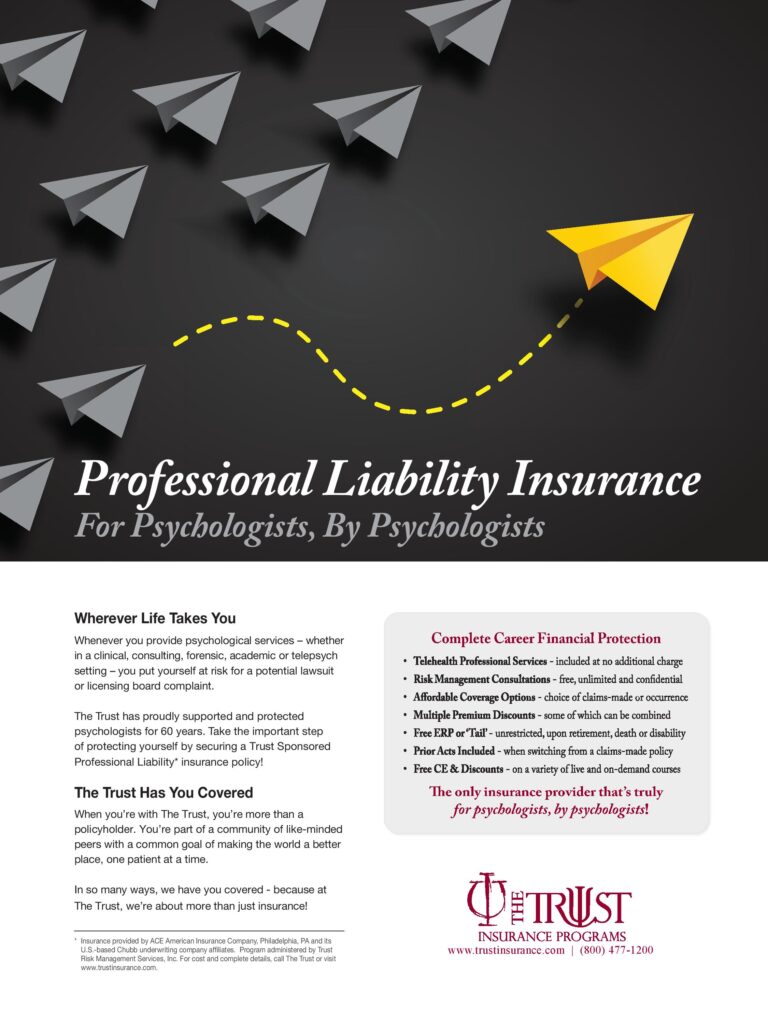
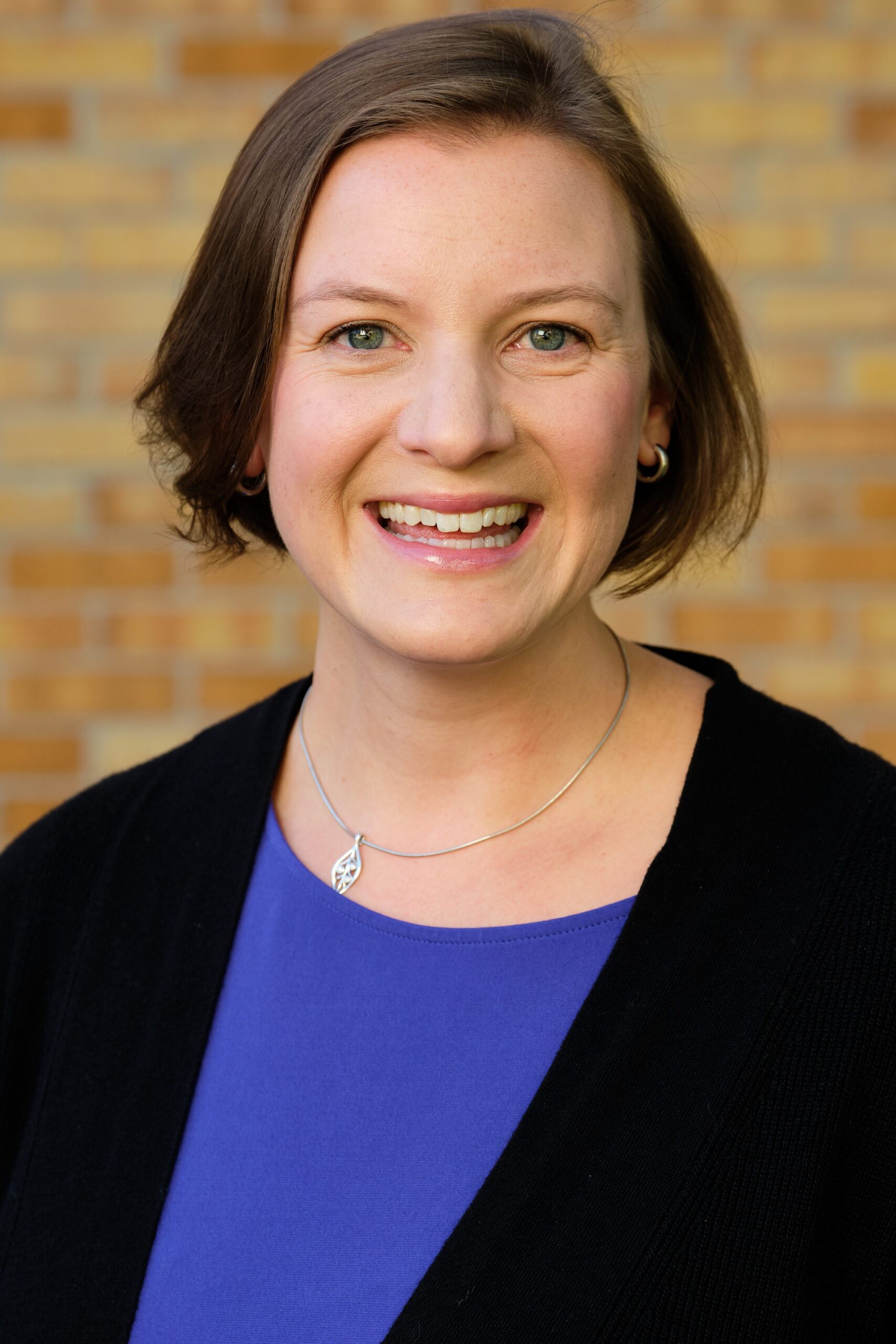

 The morning of IPA’s Spring conference likely had two “kick offs.” One was occurring being the scenes, where the conference planning committee headshot for Dr. Barazanjiwas creatively pivoting to respond to unforeseen challenges related to the resort’s amenities. My hat goes off to all those incredible individuals as they managed that kickoff with grace and innovation in order to deliver what was promised to attendees.
The morning of IPA’s Spring conference likely had two “kick offs.” One was occurring being the scenes, where the conference planning committee headshot for Dr. Barazanjiwas creatively pivoting to respond to unforeseen challenges related to the resort’s amenities. My hat goes off to all those incredible individuals as they managed that kickoff with grace and innovation in order to deliver what was promised to attendees.
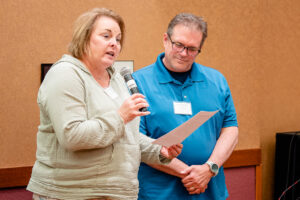 You know that a candidate is deserving of an award when two fellow psychologists both decide to nominate her at the same time. That was the case this year when both Dr. Bethe Lonning and Dr. Warren Phillips submitted nominations for Dr. Sally Oakes Edman. Their nomination letter:
You know that a candidate is deserving of an award when two fellow psychologists both decide to nominate her at the same time. That was the case this year when both Dr. Bethe Lonning and Dr. Warren Phillips submitted nominations for Dr. Sally Oakes Edman. Their nomination letter: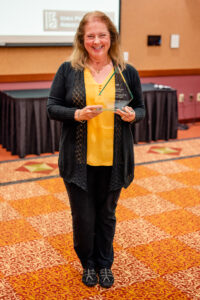 The summer after my junior year in college, I decided I should use my psychology major to become a clinical psychologist. I was 20 years old, and had never met a clinical psychologist.
The summer after my junior year in college, I decided I should use my psychology major to become a clinical psychologist. I was 20 years old, and had never met a clinical psychologist.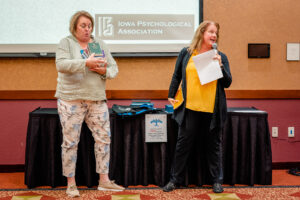 A year or two after I joined IPA, I attended a conference, since I really needed the continuing education, and as this was around the time we got our first EVER computers in our offices and were being trained on how to use a new thing called “email”, there was no remote CE option. Attending was tricky, though, because I was nursing my baby daughter, and couldn’t be away from her overnight. So I recruited my husband to come along and wrangle three little kids in a hotel room in Des Moines, and deliver my baby to me at the right times so I could nurse her. My plan was to do this while looking not like a young nursing mama, but like a mature, knowledgeable professional in this room full of older men. This was in the days of a very popular TV commercial – everyone watched the same four channels in those days – involving a sexy woman wearing a business suit and high heels singing to striptease-type music “I can bring home the bacon, fry it up in a pan, and never let him forget that he’s a man.” What a message – I can earn the money, do the housework, and still be the sexy little woman upholding my man’s masculine ego. Women were working like crazy to show that we could do it all. Ourselves. Without help.
A year or two after I joined IPA, I attended a conference, since I really needed the continuing education, and as this was around the time we got our first EVER computers in our offices and were being trained on how to use a new thing called “email”, there was no remote CE option. Attending was tricky, though, because I was nursing my baby daughter, and couldn’t be away from her overnight. So I recruited my husband to come along and wrangle three little kids in a hotel room in Des Moines, and deliver my baby to me at the right times so I could nurse her. My plan was to do this while looking not like a young nursing mama, but like a mature, knowledgeable professional in this room full of older men. This was in the days of a very popular TV commercial – everyone watched the same four channels in those days – involving a sexy woman wearing a business suit and high heels singing to striptease-type music “I can bring home the bacon, fry it up in a pan, and never let him forget that he’s a man.” What a message – I can earn the money, do the housework, and still be the sexy little woman upholding my man’s masculine ego. Women were working like crazy to show that we could do it all. Ourselves. Without help.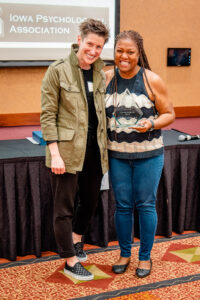 Upon joining IPA, Dr. Goins-Fernandez quickly got involved in leadership. She was instrumental in the development of our Diversity and Social Justice Committee (DJSC) in 2016. She chaired or co-chaired the committee until April of 2022. Under her leadership, the DJSC’s membership increased by more than 100%, and she welcomed many student IPA members to the committee. Dr. Goins-Fernandez’s leadership style is collaborative and empowering. In her role as DSJC chair, she regularly invited and encouraged contributions from committee members. By sharing her vision and setting clear expectations, she empowered others to do their part to promote EDI efforts within IPA. She successfully argued for a clause in all speaker contracts requiring presenters to discuss EDI aspects of their topics; this initiative was approved by our Executive Council. Dr. Goins-Fernandez was a key voice in creating and updating our Social Justice Policy that delineates procedures for how IPA addresses social justice issues and in adding a statement to our website that communicates the association’s commitment to EDI. Other than our Membership Committee, no other committee engages our members more frequently. The DSJC provides members with educational content, including formal continuing education training events and informal postings to our E-list. Dr. Goins-Fernandez has organized multiple presentations by experts in the field including Dr. Melba Vasquez (cultural competence and ethics), Dr. Sherry Wang (combating anti-Asian hate), Dr. Erin Alexander (racial reconciliation), and Dr. Erin Andrews (disability awareness and ethics). She and the DSJC created a Graduate Student Diversity and Social Justice Award to recognize IPA student members for community-based social justice projects. She also started the DSJ Book and Film Club, in which IPA members read books or watch films on EDI topics. Some of the books discussed have included “How to be an Anti-Racist” by Dr. Ibram X. Kendi, “Minor Feelings: An Asian American Reckoning” by Cathy Park Hong, and “Sissy: A Coming of Gender Story” by Jacob Tobia; film titles include “13th” and “Katrina Babies.”
Upon joining IPA, Dr. Goins-Fernandez quickly got involved in leadership. She was instrumental in the development of our Diversity and Social Justice Committee (DJSC) in 2016. She chaired or co-chaired the committee until April of 2022. Under her leadership, the DJSC’s membership increased by more than 100%, and she welcomed many student IPA members to the committee. Dr. Goins-Fernandez’s leadership style is collaborative and empowering. In her role as DSJC chair, she regularly invited and encouraged contributions from committee members. By sharing her vision and setting clear expectations, she empowered others to do their part to promote EDI efforts within IPA. She successfully argued for a clause in all speaker contracts requiring presenters to discuss EDI aspects of their topics; this initiative was approved by our Executive Council. Dr. Goins-Fernandez was a key voice in creating and updating our Social Justice Policy that delineates procedures for how IPA addresses social justice issues and in adding a statement to our website that communicates the association’s commitment to EDI. Other than our Membership Committee, no other committee engages our members more frequently. The DSJC provides members with educational content, including formal continuing education training events and informal postings to our E-list. Dr. Goins-Fernandez has organized multiple presentations by experts in the field including Dr. Melba Vasquez (cultural competence and ethics), Dr. Sherry Wang (combating anti-Asian hate), Dr. Erin Alexander (racial reconciliation), and Dr. Erin Andrews (disability awareness and ethics). She and the DSJC created a Graduate Student Diversity and Social Justice Award to recognize IPA student members for community-based social justice projects. She also started the DSJ Book and Film Club, in which IPA members read books or watch films on EDI topics. Some of the books discussed have included “How to be an Anti-Racist” by Dr. Ibram X. Kendi, “Minor Feelings: An Asian American Reckoning” by Cathy Park Hong, and “Sissy: A Coming of Gender Story” by Jacob Tobia; film titles include “13th” and “Katrina Babies.” 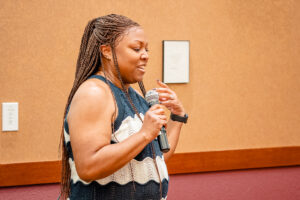 Dr. Goins-Fernandez has made a significant impact on IPA, and our organization is better and stronger for it. There is no doubt that she has helped Iowa psychologists provide more effective and safer care to Iowans who have experiences and identities that differ from their own by spearheading programming to expand their multicultural awareness, knowledge, and skills. It is for these reasons and more that I believe she is deserving of IPA’s Diversity Leadership award.
Dr. Goins-Fernandez has made a significant impact on IPA, and our organization is better and stronger for it. There is no doubt that she has helped Iowa psychologists provide more effective and safer care to Iowans who have experiences and identities that differ from their own by spearheading programming to expand their multicultural awareness, knowledge, and skills. It is for these reasons and more that I believe she is deserving of IPA’s Diversity Leadership award.
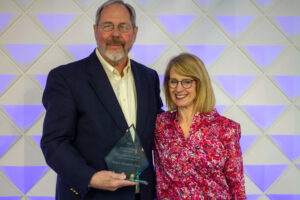 I am writing to nominate Dr. Kevin Krumvieda for the 2022 Phil Laughlin Meritorious Service Award. I met Kevin at an IPA conference shortly after I joined IPA in 1995. He welcomed me and took time to get to know me as a psychologist and a person. I now have the good fortune to work with him as a fellow member of the Iowa Psychological Foundation.
I am writing to nominate Dr. Kevin Krumvieda for the 2022 Phil Laughlin Meritorious Service Award. I met Kevin at an IPA conference shortly after I joined IPA in 1995. He welcomed me and took time to get to know me as a psychologist and a person. I now have the good fortune to work with him as a fellow member of the Iowa Psychological Foundation.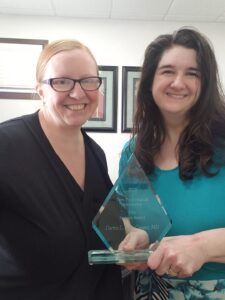 The movement for prescriptive authority for psychologists in Iowa is still in its infancy. The support from psychiatrists and other physicians is vital as psychologists who are certified to prescribe is necessary. As such, a psychologist pursuing a conditional prescribing certificate not only has to complete academic coursework which takes on average two to three years, but they have to complete a multidisciplinary practicum with at minimum work with a primary care provider and a psychiatrist. A total of 400 practicum hours and at least 600 patient encounters are required, along with the completion of a masters in clinical psychopharmacology and the passing of a licensure exam, the PEP. The number of hours dedicated by not only the psychologist in training but also a supervisor is extensive. Therefore, Dr. Cooper, Dr. Kopp, and Dr. Lonning would like to nominate Dr. Darbie Little-Cooper for the IPA Service Award.
The movement for prescriptive authority for psychologists in Iowa is still in its infancy. The support from psychiatrists and other physicians is vital as psychologists who are certified to prescribe is necessary. As such, a psychologist pursuing a conditional prescribing certificate not only has to complete academic coursework which takes on average two to three years, but they have to complete a multidisciplinary practicum with at minimum work with a primary care provider and a psychiatrist. A total of 400 practicum hours and at least 600 patient encounters are required, along with the completion of a masters in clinical psychopharmacology and the passing of a licensure exam, the PEP. The number of hours dedicated by not only the psychologist in training but also a supervisor is extensive. Therefore, Dr. Cooper, Dr. Kopp, and Dr. Lonning would like to nominate Dr. Darbie Little-Cooper for the IPA Service Award.
